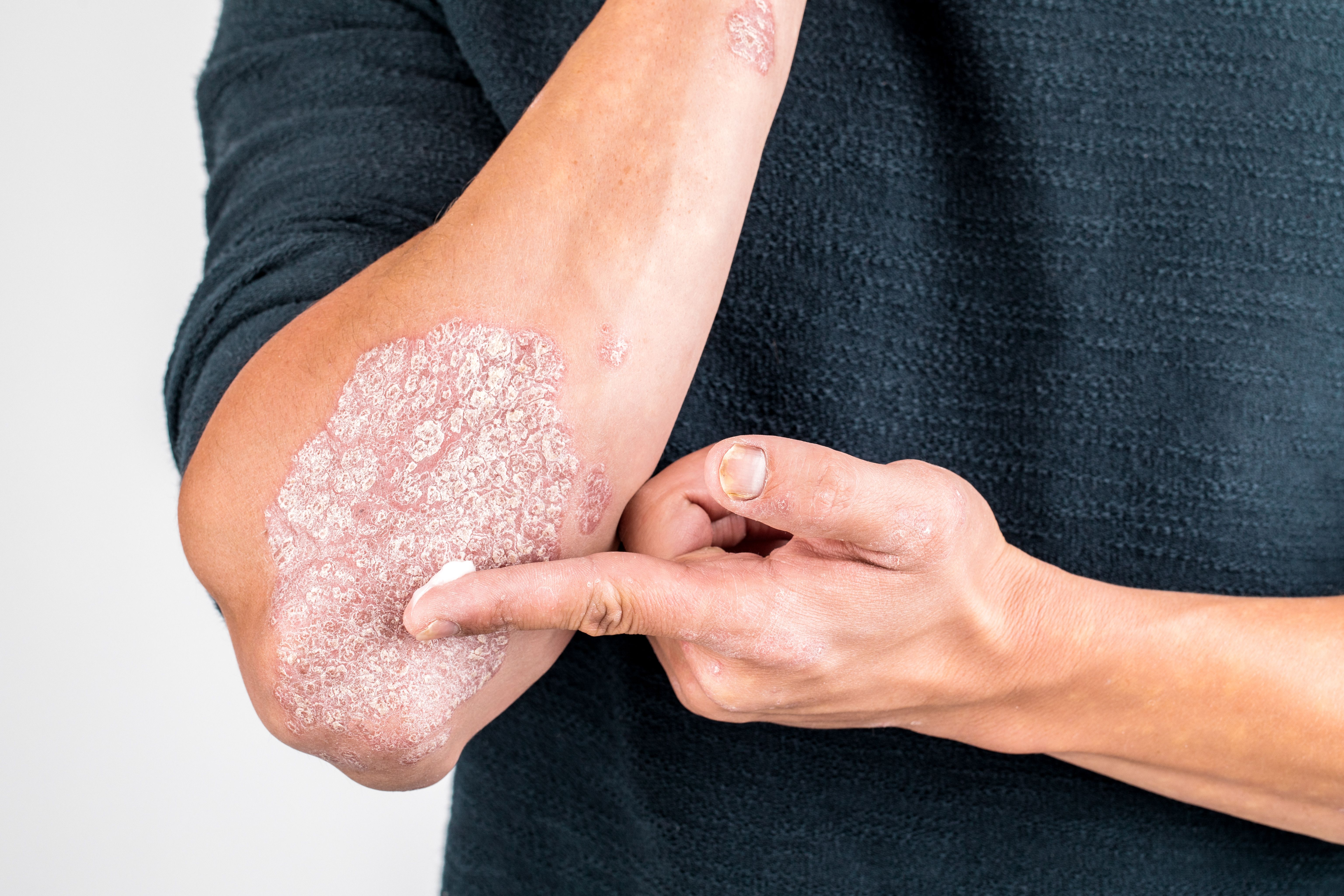
- Case-Based Roundtable
- General Dermatology
- Eczema
- Chronic Hand Eczema
- Alopecia
- Aesthetics
- Vitiligo
- COVID-19
- Actinic Keratosis
- Precision Medicine and Biologics
- Rare Disease
- Wound Care
- Rosacea
- Psoriasis
- Psoriatic Arthritis
- Atopic Dermatitis
- Melasma
- NP and PA
- Skin Cancer
- Hidradenitis Suppurativa
- Drug Watch
- Pigmentary Disorders
- Acne
- Pediatric Dermatology
- Practice Management
- Prurigo Nodularis
- Buy-and-Bill
Article
60 percent risk of alcohol-related death in psoriasis
Author(s):
NEJM analysis proves what has been suspected for decades: Alcohol can be more deadly in the psoriasis population as compared to non-psoriasis patients.
A population-based study of 55,537 psoriasis patients finds that these patients have a 60 percent greater risk of dying from alcohol-related causes as compared to a comparable group of non-psoriasis patients.
This may explain the premature mortality gap in this group of patients who have been known to have an increased risk of premature mortality, say the authors of the study which appears in the December issue of JAMA Dermatology.
Led by Darren Ashcroft, Ph.D., of the University of Manchester, the authors suggest that physicians consider incorporating routine alcohol screening into medical exams as well as the identification of alcohol consumption, treatment for alcohol misuse and use of the Alcohol Use Disorders Identification Test (AUDIT-C) in primary and secondary care settings.
“People diagnosed with psoriasis had a greater risk of dying, on average 3 years younger, due to alcohol-related causes, compared with the general population. Moreover, although there was no evidence of a variation in relative risk by sex, women with psoriasis died of alcohol-related causes at considerably younger age (approximately 5 years) than women without psoriasis who died from these causes,” the authors wrote.
Only two previous studies - published 20 years ago - have explored the possibility of alcohol-related mortalities in psoriasis patients.
LIVER DISEASE DEATHS: 65%
The study included 55,537 adult psoriasis patients who were compared to 854,314 non-psoriasis patients. The patient pool was derived from electronic health records. The average age of the patients was 47 and 45 percent were men. It included 4.4 years of follow-up. The alcohol-related morality rate was 4.8 per 10,000-person years compared to 2.5 per 10,000-persons years for the comparison group.
The most common cause of alcohol-related deaths was liver disease (65.1%), which was followed by fibrosis and cirrhosis of the liver (23.7%), and mental and behavioral disorders (7.9%). (Hazard ratio was 1.58, 95% CI, 1.31-1.91). The findings suggest that alcohol misuse often goes unidentified and undertreated by physicians.
The authors write that as many as one-third of psoriasis patients with the moderate-to-severe form of the disease, consume alcohol in excessive amounts. The amount of alcohol a psoriasis patient drinks seems to be directly correlated with affected body surface area.
Psoriasis is one of the most psychologically distressful of skin conditions for both pediatric and adult psoriasis patients. For some patients, managing emotional distress can be more distressful that then condition itself. Very few psoriasis patients in the study were prescribed treatment for depression or anxiety even though most patients in the study had been previously hospitalized for alcohol dependence.
The study’s size and of electronic medical records from which to glean data for this study were key strengths of the study. The methodology, allowed researchers to clearly ascertain alcohol-related mortalities.
“The electronic health records revealed that most patients who died of alcohol-related causes in the psoriasis cohort or in the comparison cohort had at least one lifetime hospital admission for a chronic alcohol-related condition (85.5% and 79.0%, respectively). Among those patients who died due to alcohol-related disease 82.2% in the psoriasis group and 75.5% in the comparison group had been classified as heavy drinkers in their primary care medical records,” the authors wrote.
REFERENCES
Rosa Parisi, PhD; Roger T. Webb, PhD; Matthew J. Carr, PhD; et al. "Alcohol-Related Mortality in Patients with Psoriasis a Population-Based Cohort Study,"JAMA Dermatology. December 2017. DOI:10.1001/jamadermatol.2017.3225
2 Commerce Drive
Cranbury, NJ 08512
All rights reserved.





